Keeping your HP drivers for Windows 10 up to date is essential for maintaining smooth performance and hardware stability. Updated drivers improve system responsiveness, fix bugs, and ensure compatibility with HP laptops, desktops, and peripheral devices. This guide provides a complete and practical approach to installing and updating HP drivers, with clear step-by-step instructions for every method.
Importance of HP Drivers for Windows 10
Drivers act as the communication bridge between Windows 10 and your HP hardware. HP devices rely on various drivers such as graphics, audio, Wi-Fi, touchpad, printer, chipset, and BIOS. Outdated or missing drivers can cause slow performance, connection issues, audio distortion, or system crashes. Updating your drivers ensures that Windows 10 can control your HP device correctly and efficiently.
Method 1: Automatically Update HP Smart Drivers
Manually updating your HP drivers can be tedious and confusing. With Driver Talent X, you can skip the hassle and let the software automatically find and install the most compatible drivers for your HP devices.
Download and Install the Software
Begin by clicking the "Download" button to get the software package. After downloading, run the installation file to set up Driver Talent X on your PC.
Run a System Scan
Open the program and go to the "Drivers" tab, then click on "Scan." The software will perform a detailed scan of your system.
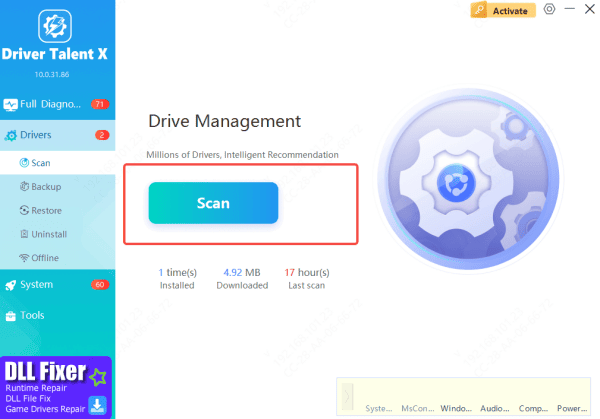
Update Drivers
Once the scan is finished, Driver Talent X will display a list of outdated or missing drivers. Choose which drivers you want to update, and then click "Upgrade" or "Repair Now." The software will automatically download and install the latest certified drivers for your HP devices, ensuring optimal performance.
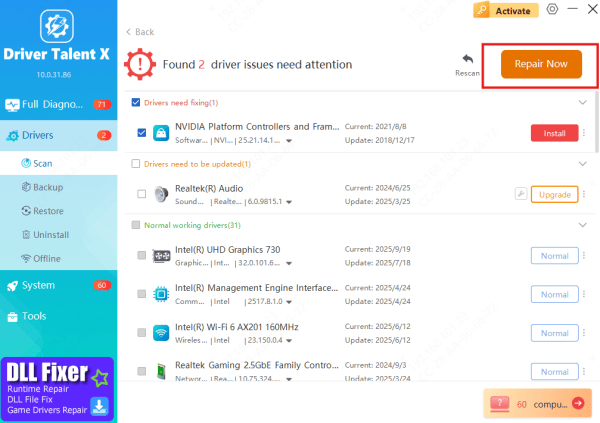
Restart Your PC
To complete the update process and integrate the new drivers, restart your PC. This allows the updates to take full effect and function correctly within your Windows 10 environment.
Method 2: Update with HP Support Assistant
HP Support Assistant provides HP-specific updates that match your exact device model.
Open HP Support Assistant. If you do not have it, download it from the HP website
Launch the program and wait for it to detect your HP device
Click the Updates or Check for Updates option
Review the list of recommended HP driver updates
Click Install to apply the updates
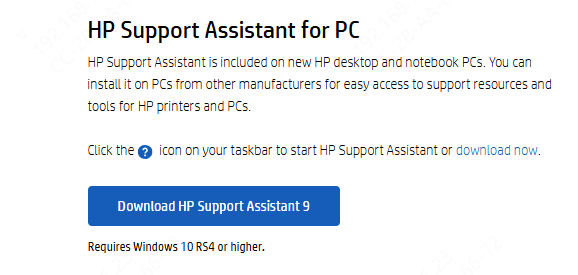
Method 3: Download Drivers from the HP Official Website
The HP support website gives you full control over which driver versions you install.
Visit the official HP support website
Enter your product name, model number, or serial number in the search box
Select Windows 10 as your operating system
Browse the list of available drivers such as graphics, audio, network, BIOS, and chipset
Click Download next to the driver you need
Open the downloaded file and follow on-screen instructions to complete installation
This method is recommended for users who prefer manual control or need specific driver versions.
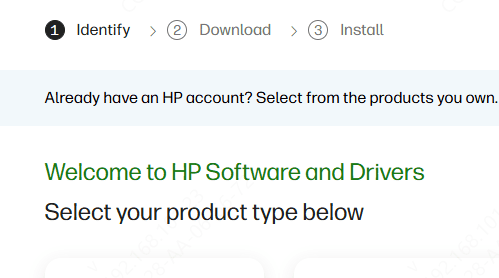
Method 4: Update Drivers Through Device Manager
Device Manager allows you to update individual drivers without affecting the whole system.
Open the Start menu and type Device Manager
Select the hardware category (for example: Display adapters, Network adapters, Sound controllers)
Right-click the device you want to update
Choose Update Driver
Select Search automatically for drivers to let Windows find the latest version
If you have downloaded a driver manually, choose Browse my computer for drivers and select the file
This method is useful when a single component is malfunctioning.
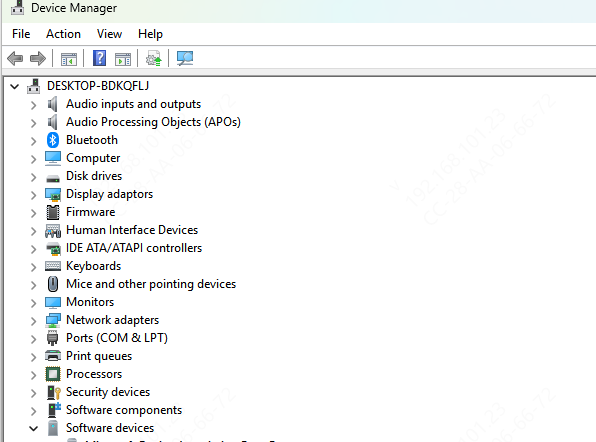
Method 5: Install HP Drivers with Windows Update
Windows Update is another way to refresh update or install HP drivers for Windows 10.
Open the Start menu and click Settings
Go to Update and Security
Select Windows Update from the left menu
Click Check for Updates
If Windows finds HP-certified driver updates, they will install automatically.
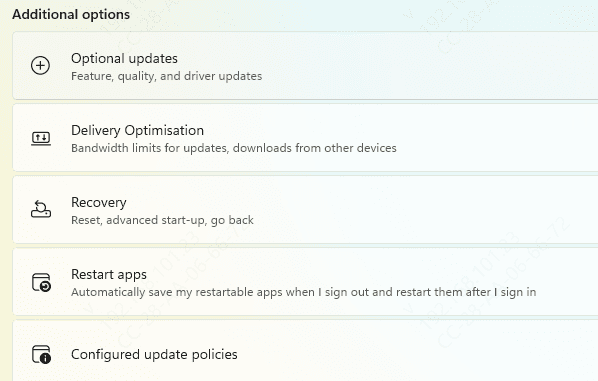
Conclusion
Updating HP drivers for Windows 10 is essential for optimal system performance, stability, and compatibility. Whether you rely on Driver Talent X, Windows Update, HP Support Assistant, manual downloads, Device Manager, or an automatic driver tool, each method offers a reliable way to keep your device running smoothly. Regular updates will prevent hardware issues, improve efficiency, and ensure long-term reliability for your HP device.
